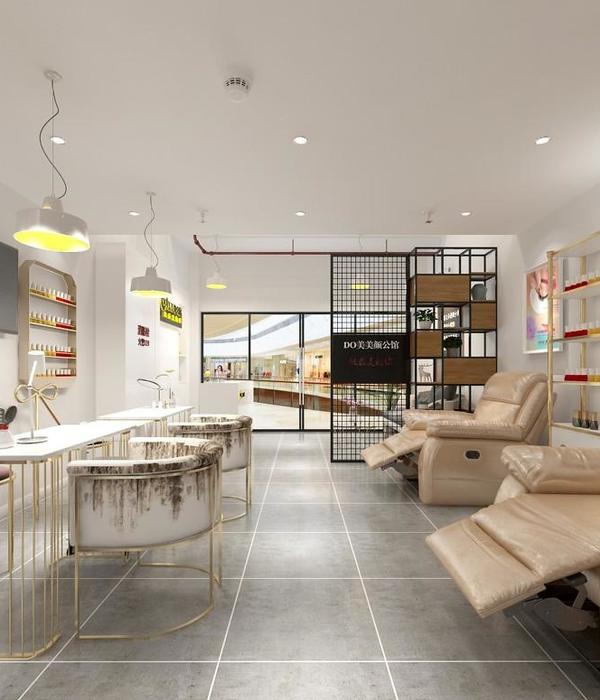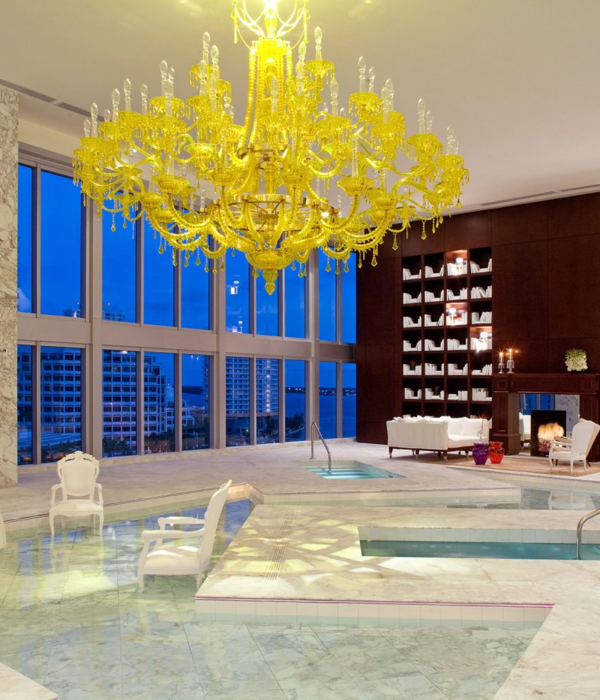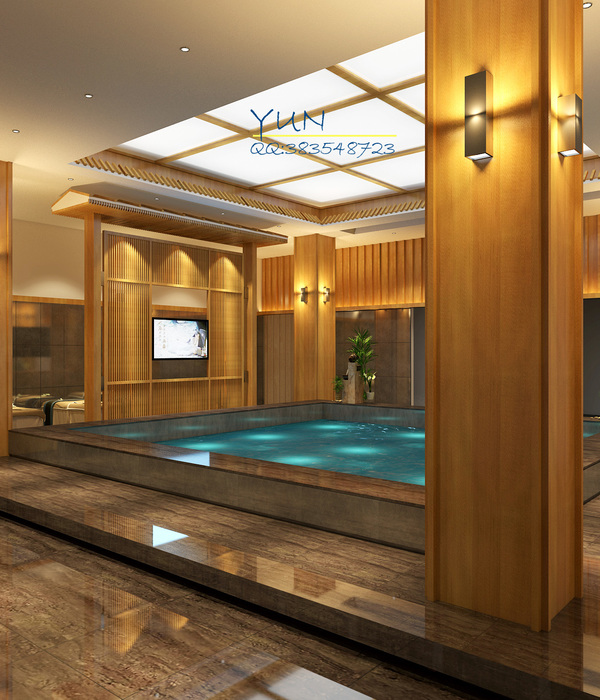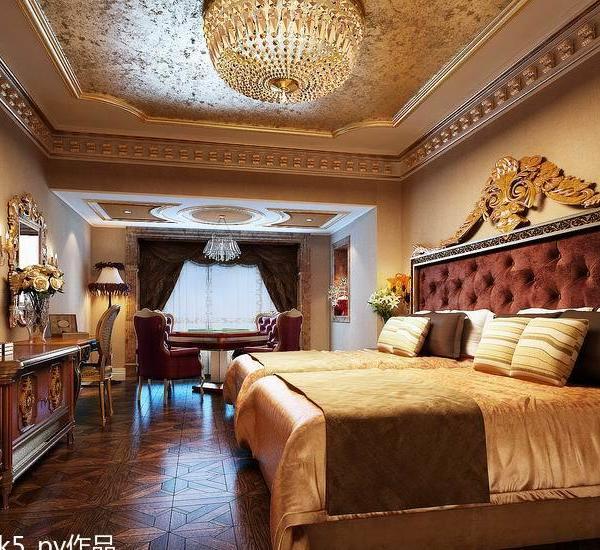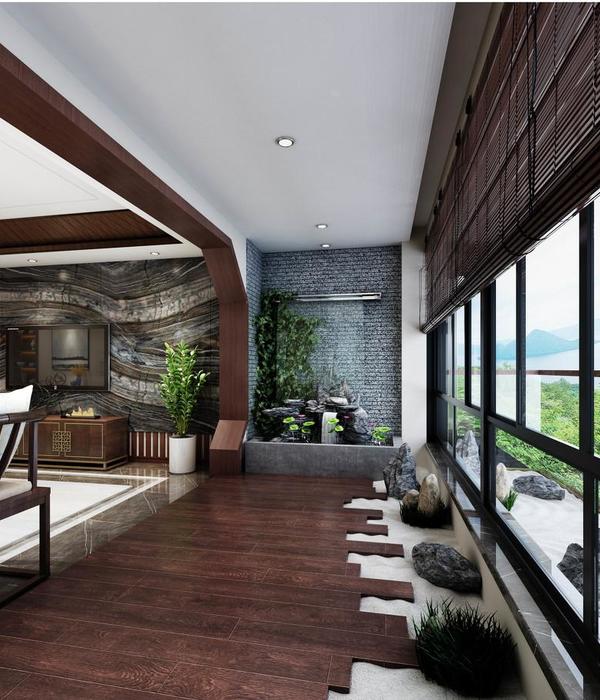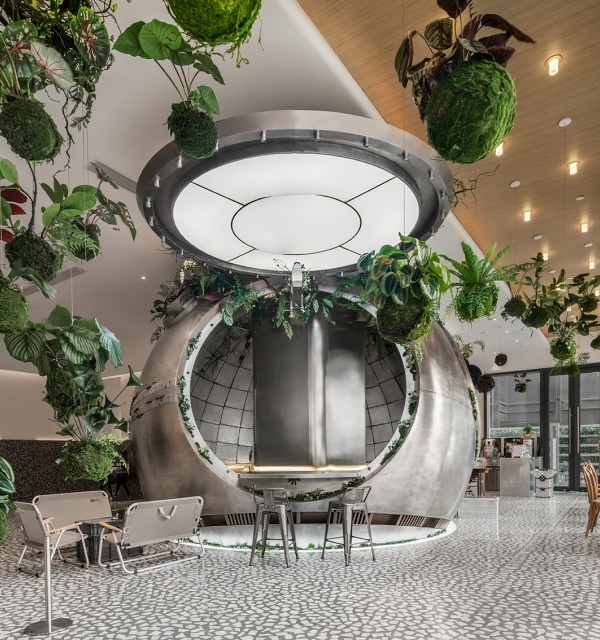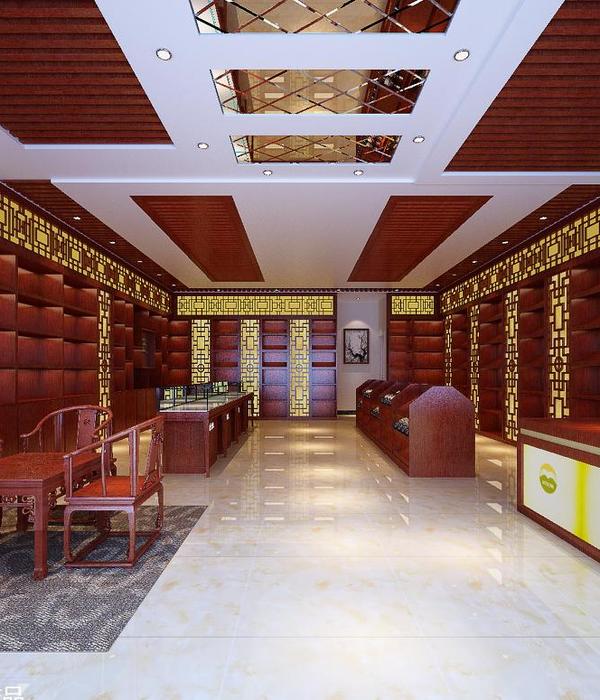作为世界上最好的餐厅之一,Steirereck餐厅在几年前已经被重新装修,但重新再次装修,增加更多的用餐空间并提高用餐环境的质量对餐厅来讲是必要的。
为此餐厅在2010年举办了设计竞赛,期望实现这一目标,餐厅业主例举了一些词语表述要求,比如:“独特,优雅,永恒,创新”。
Steirereck is one of the best restaurants in the world. The need for more internal space and the ever-increasing demands placed on this sector meant that a comprehensive re-formulation became necessary, despite renovations being completed only a few years before.
▲ Entrance 面朝公园端的入口
In 2012 there was an invited competition which aimed to find a solution. The high expectations of the clients, the Reitbauer family, are revealed by the contrasting pairs of words that were to describe the design. These words included “unique and elegant, timeless and innovative”.
▲ Relation between inside and outside 介于“内”和“外”
建筑师在接到任务书后从员工角度和客户角度等不同的方面研究了餐饮业。他们发现相对于居住空间,餐厅的历史发展分化较少,通常都是一个大用餐空间充斥着各种装饰。建筑师希望设计出一个全新的用餐空间。最终餐厅像手指那样分支,向不同的方向探去,与公园的环境包括附近的儿童游乐场和谐相连。
▲ Site Plan 总平
In order to develop a closer understanding of the task in hand, we completed in depth research into the topic of food from the perspective of both catering staff and customers by slipping into various different roles. We saw that, in comparison to other typologies such as that of housing, the historical development of the dining space has been less differentiated.
The classical dining space is essentially a container which is then filled with tables. Our suggestion provides the missing link. When designing the new dining space we worked outwards from individual tables. What used to be a terrace leading to a children’s playground is now a system of pavilions, branching out, finger-like, from a precise table arrangement. Every table is placed at the edge against the façade and offers varied visual connections to both the outside and to the other tables.
The pavilions are constructed out of individual components made of industrial wood, providing the tables with a protective backing, a home for the evening.
▲ View Park 从公园看餐厅
▲ Interaction with the park 餐厅与公园互动
餐厅的外表皮由大型电动推拉窗和似乎蒙上了雾气的轻微反光金属板组成,在声学和热舒适度方面具有良好的指标,塑造出一个非同凡响但是有亲切吸引人的形象。客人们在餐厅用餐仿佛置身室外。餐厅的露台与公园直接相连。大型电动推拉窗往上抬起,成为建筑造型的一个特色。屋顶还有一个药草园。
餐厅就像是一个温和的发光体。
▲Roof 屋顶药草园,大型电动推拉窗往上抬起,成为建筑造型的一个特色。
The proximity to the park was of particular importance to the clients. Large electric sash windows, and the slightly reflective metal façade that appears to be coated with dew, create a sense of visual closeness, providing guests with the highest levels of acoustic and thermal comfort while at the same time giving them the feeling that they are sitting outside and yet also at home.
The pavilions lead to courtyards on the same level, which are connected to the park via seating steps that signalise both embeddedness and, at the same time, a borderline. One of the gullies leads to the entrance and the herb garden can be found on the roof.
The mimicry architecture of the pavilions creates a connection to the light architecture often found in parks.
▲ Interaction with the park 餐厅与公园互动
靠近Wiental公路的一侧,最大的用餐空间继承了室外表皮材料,其成为可以旋转的曲面墙面面板,能够根据需要组合划分出不同大小的用餐区域,这部分用餐空间的天花板造型如同漂浮的等高线,倒立的高山与峡谷进行设计,并不影响金属旋转面板对餐厅空间重组。
The existing listed dining space on the side of the Wiental will undergo a complete change. Curved, partially rotatable metal panels bring the material of the pavilions’ façades into the interior space, creating rooms of different proportions and sizes when needed. The ceiling floats over the heads of the guests like a horizontal contour map, the mountains and valleys making the window lintels disappear, effortlessly negotiating the different positions and heights of the rotating elements.
Where the listed nature of the structure allows, frameless, contorted elements made entirely of glass will be inserted. The combination of new and existing elements allows the room to appear simultaneously old and new.
▲ Old remodeled dining hall 原有改造后的用餐空间–靠近Wiental公路的一侧,最大的用餐空间。保留了部分原有装修,家具也是原有家具。新的墙面面板可以自由划分空间。天花板如同水平反转的等高线。
餐厅的中部大厅联系这餐厅的各个部分,客人与餐厅工作人员都会经过这里,建筑师希望客人变成厨房的观众,让他们产生参与餐厅运作的意识。装饰采用了马赛克瓷砖作为装饰材料,内饰还应景的搭配上厨房橱柜与用具,甚至还有奶酪陈列房。设计成果的给予客人仿佛置身厨房亲身参与烹饪的体验。
▲ View into reception and kitchen 中区,看前台与厨房
A middle section connects the different areas and levels and will be crossed by staff and guests alike. The algorithmic tile pattern, which is at no point identical, reminds the viewer of a kitchen, giving the guest the sense that they too are involved in the inner workings of the restaurant. Marking the way are cabinets used by the kitchen staff containing interesting objects, which, together with the seating provided at intervals, encourage guests to stop and spend time there.
Passing seed and cheese cabinets, the route in the basement leads to the toilets, where a whole new world is revealed. The crystalline shape stems from the positioning of the toilet pans and washbasins and is made visually perplexing by contradicting, geometrical paintings.
Under the pavilions there is a generous kitchen extension housing sinks, pot and pan cleaning area, food preparation area, patisserie, washing facilities, laboratory kitchen and social room, all of which are light despite their location and lit partially by solatubes in the daytime. In the lower levels there are also extensive new areas for the building services.
▲ Hall 中区大厅
▲ Hallway 走廊
▲ Access to lower level and seed display 大厅下层
▲ Cheese-Display 奶酪展示
餐厅中部的卫生间也延续了该氛围,采用了马赛克瓷砖,同时运用独特结晶体形状图案作为墙面装饰。卫生间是餐厅重要的组成部分。
The toilets in the basement create a unique crystalline geometry and atmosphere, forming, as a heterotopia, an important part of the restaurant.
▲Mens toilet 男士卫生间
整个设计的各个方面都巨细无遗的进行了反复讨论,建筑师在建议中创造出许多试验性的元素。采用天然材料和高科技材料,组合现有家具和全新的家具,形成一个具有历史性的画面,甚至餐厅2004年的装修要素也被保留。整个工程持续了两年的时间,餐厅一边保持营业,一边进行了改建。
▲ Open Kitchen 开放厨房
All aspects have been discussed in great detail, the numerous suggestions bringing us ever closer to the appropriate solution. Many experimental elements were created throughout the process, in terms of both construction and cabinetry: The tables and the stove in the smoking area with its chambers of different temperatures visible through glass bubbles, the large reception desk in the entrance area created from a special mixture of wood and synthetic material, the handbag bench that can also form a screen if needed etc. In these elements we have attempted to combine natural and high-tech materials as well as new and existing furniture. At various points images of the 2004 renovations can also be seen.
Within a planning and build time of only two years, a project has been realised that combines many very different areas with an extension to create an entirely new building. A large part of construction work took place while the restaurant was still open for business, creating an additional challenge for all those involved. During the construction period the building was accessed from above, giving guests a view of the building site. The construction fence erected specifically for this area was a building in itself.
▲ Lounge 休息室
▲ In between pavilion and hall 新餐厅与大厅连接处
▲ Connection inside and outside 连接内外
▲ New dining area 餐厅新用餐区
一个全新的餐厅,让人过目难忘却不咄咄逼人,带来温馨体验,融入周边环境,同时具有自己强烈的建筑气场。
The result is something new but also cosy, something that merges into the background but yet is, at the same time, a strong architectural statement.
▲ Outside at dawn 破晓时分外景
▲ Concept Model 概念模型
▲ Groundfloor Plan 地面层
▲ Ceiling 天花板
▲ Section 剖面
▲ Tiles Concept 瓷砖模型
▲ Furnitures 家具图
▲ Restrooms Concept 卫生间概念
↑ Wall Color Concept 新用餐区木墙概念
Start of construction 09 – 2013 End of construction 06 – 2014
PPAG Team Competition, Concept and Supervision: Anna Popelka, Georg Poduschka, Lilli Pschill, Ali Seghatoleslami Project Leader: Manfred Karl Botz Planning Team: Roland Basista, Jakub Dvorak, Patrick Hammer, Annika Hillebrand, Philipp Müllner, Lucie Najvarova, Matthias Oltay, Adrian Trifu, Felix Zankel
Partners Structural Engineer: Werkraum, Wien Mechanical services / engineer: Bauklimatik, Wien/Linz Structural work and timber construction: Hazet Bauunternehmung, Wien Lining and completition: Individual contractors
Photo Credits © pierer.net © PPAG architects
{{item.text_origin}}





